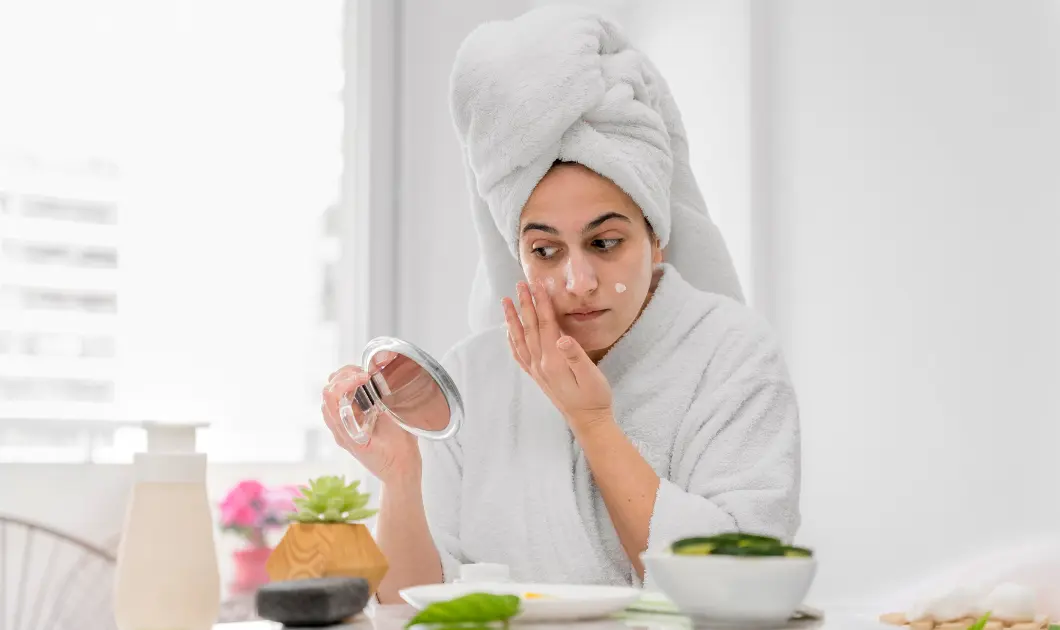
JULY 04, 2025
BY ADMIN
The Truth About Uneven Skin Tone: What You Can Do About It
When you think of radiant, healthy-looking skin, one of the first things that comes to mind is even skin tone. A smooth, balanced complexion is not only aesthetically pleasing—it also reflects skin that's well cared for. But for many, achieving that flawless tone can be challenging.
When you think of radiant, healthy-looking skin, one of the first things that comes to mind is even skin tone. A smooth, balanced complexion is not only aesthetically pleasing—it also reflects skin that's well cared for. But for many, achieving that flawless tone can be challenging.
What is an Even Skin Tone?
An even skin tone means a uniform complexion without discoloration, dark spots, redness, or blotchiness. It refers to consistent pigmentation across your face and body, without patches of hyperpigmentation (darkened skin), hypopigmentation (lightened skin), or uneven texture.
What Causes Uneven Skin Tone?
Skin tone irregularities can occur for several reasons:
- Sun Exposure: UV rays trigger excess melanin production, leading to sunspots or age spots.
- Post-Inflammatory Hyperpigmentation (PIH): Dark spots that appear after acne, cuts, burns, or irritation.
- Hormonal Changes: Pregnancy, birth control, or menopause can cause melasma—patchy brown or gray pigmentation.
- Aging: As skin matures, cell turnover slows, causing buildup and dullness.
- Pollution & Environmental Stressors: These can damage the skin barrier and stimulate uneven melanin production.
- Genetics & Skin Type: People with deeper skin tones are more prone to hyperpigmentation due to higher melanin content.
Understanding Hyperpigmentation & Discoloration
Melanin is the pigment that gives skin its color. When skin is injured or exposed to inflammation or sun, melanin-producing cells (melanocytes) become overactive and release too much pigment, causing dark patches.
Common types of discoloration include:
- Melasma: Hormone-related patches, often on the cheeks and forehead
- Sunspots: Resulting from prolonged UV exposure
- PIH: Leftover pigmentation from wounds or acne
How to Achieve and Maintain an Even Complexion
1. Power Ingredients for Even Skin Tone
These ingredients are scientifically proven to target dark spots and improve tone:
- Vitamin C: Brightens skin, inhibits melanin production, and protects from oxidative stress
- Niacinamide: Reduces inflammation, improves texture, and lightens dark spots
- Alpha Arbutin: A gentle melanin-inhibitor for sensitive skin
- Retinoids (Retinol, Tretinoin): Encourage cell turnover and fade pigmentation
- Licorice Extract: Calms skin and reduces dark spots
- Azelaic Acid: Treats acne and pigmentation safely for all skin tones
- Tranexamic Acid: Especially effective against melasma
- AHA/BHA (Glycolic, Lactic, Salicylic Acid): Exfoliate surface cells to promote brightness
2. Daily Skincare Routine
- Morning
- Gentle Cleanser
- Antioxidant Serum (Vitamin C or Niacinamide)
- Moisturizer with ceramides
- Broad-spectrum SPF 30 or higher
- Night
- Double Cleanse (especially if using makeup)
- Exfoliant (2–3x/week)
- Treatment serum (Retinol, Azelaic Acid, etc.)
- Hydrating moisturizer
3. Lifestyle Habits That Promote Even Skin
- Avoid picking or scratching blemishes
- Manage stress and sleep well to balance hormones
- Stay hydrated and eat antioxidant-rich foods
- Never skip sunscreen—even indoors or on cloudy days
4. Professional Treatments to Consider
- Chemical Peels (AHA/BHA-based)
- Microneedling: Stimulates collagen and cell turnover
- Laser Treatments: Target deep pigment issues like melasma or sunspots
- Hydrafacials: Cleanse and infuse brightening serums deeply
Tips by Skin Type
- Oily/Acne-Prone Skin: Opt for lightweight, non-comedogenic products. Use niacinamide and salicylic acid.
- Dry/Sensitive Skin: Go for soothing ingredients like licorice, ceramides, and avoid harsh exfoliants.
- Combination Skin: Use a mix—brightening serums in pigmented areas, hydrating products elsewhere.
- Deep Skin Tones: Be cautious with lasers; use azelaic acid, kojic acid, and tranexamic acid which are melanin-safe.
Your skin tells a story, an uneven tone might be its way of signaling stress, sun damage, or hormonal shifts. While good skincare helps, real progress starts with understanding what your skin truly needs. A personalized plan from a professional can make all the difference, especially when dealing with stubborn spots or recurring issues. Don’t just treat-treat smart.
